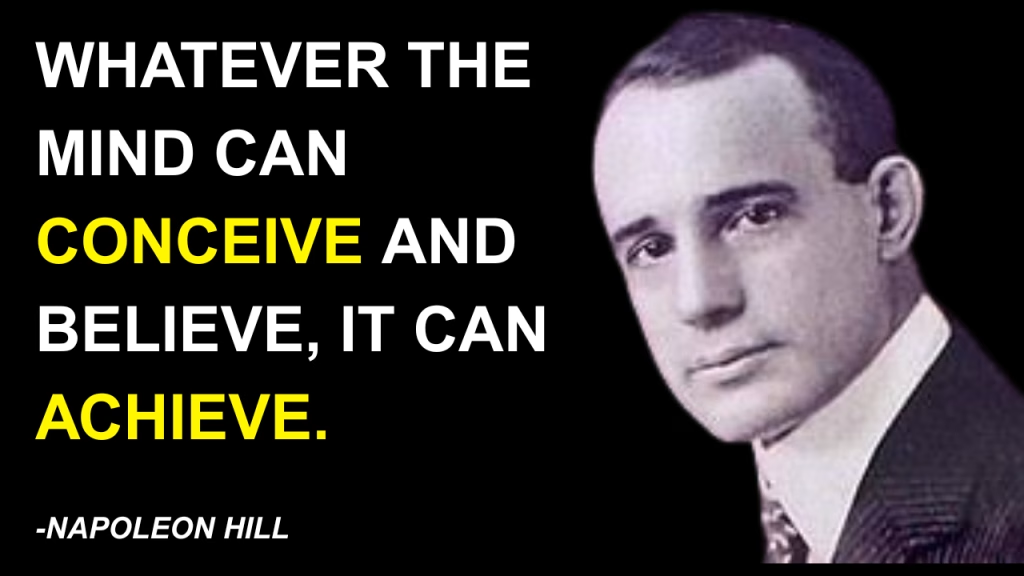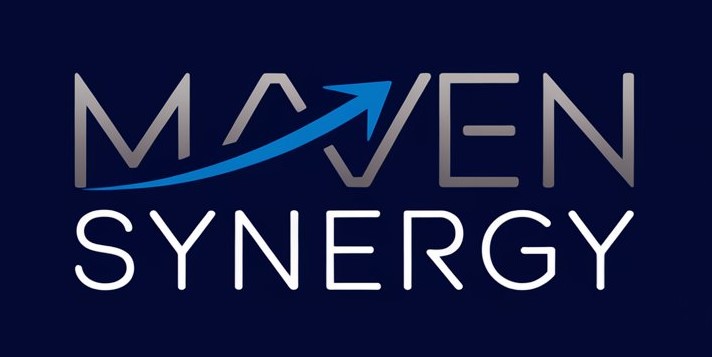13 Life-Changing Lessons from Think and Grow Rich That Will Help You Build Wealth and Success
Published in 1937, Think and Grow Rich by Napoleon Hill has sold over 100 million copies worldwide. And here’s the kicker—nearly nine decades later, it STILL contains the most powerful formula for achieving financial success and unlocking the true power of your mind.
Here’s what gets me absolutely FIRED UP about this masterpiece: It’s not just another self-help book collecting dust on your bookshelf. These 13 principles have transformed ordinary people into millionaires, turned dreamers into doers, and completely shifted mindsets from scarcity to abundance.
Your current financial situation doesn’t determine your future wealth potential—your thoughts and actions do.
I’ve read this book countless times, and each time I walk away with something deeper. I’ve personally applied these lessons in my own journey from struggling to thriving, and I’ve watched them work for thousands of others who dared to implement them.
Today, I’m breaking down the exact strategies that have stood the test of time, giving you practical, modern-day applications you can start using immediately. We’re talking about principles that built the fortunes of Andrew Carnegie, Henry Ford, and countless entrepreneurs who’ve followed in their footsteps.
Success isn’t about luck, connections, or being born into the right family. It’s about thinking right, acting boldly, and never giving up on your vision. Ready to learn the same mindset that millionaires have lived by for generations?
Let’s dive into these 13 life-changing lessons that will transform how you think about money, success, and your own potential forever.
1. The Power of a Burning Desire: Your Success GPS

Let me tell you something that changed my entire approach to goal-setting: vague goals create vague results. Hill’s first principle isn’t about casual wanting – it’s about developing a burning desire for success that consumes your thoughts and drives your actions.
I used to set wimpy goals like “I want to make more money.” Big mistake! Hill teaches us that desire must be specific, measurable, and so intense it becomes an obsession. When I shifted to “I will earn $100,000 by December 31st through my consulting business,” everything changed. My brain suddenly had a target to lock onto.
Here’s what a modern vision board looks like in 2025: It’s not just pretty pictures on cork boards. I’m talking about digital mood boards, smartphone wallpapers with your goals, and even augmented reality apps that let you visualize your success daily. The key is making your burning desire visible and present in your everyday life.
Your desire becomes the starting point of all achievement. Without it, you’re just wandering through life hoping something good happens. With it, you become unstoppable.
2. Faith: Believing in the Unseen
This is where most people trip up. Hill’s concept of faith isn’t religious – it’s about developing unshakeable belief in yourself and your ability to achieve your goals. I’ve seen brilliant people fail because they lacked faith, and average people succeed because they believed beyond doubt.
The role of self-belief in success cannot be overstated. When you truly believe something is possible, your brain starts noticing opportunities everywhere. It’s like buying a red car and suddenly seeing red cars on every street corner – they were always there, but now you’re tuned in.
Here’s how I use affirmations and visualization daily: Every morning, I spend 10 minutes repeating my goals as if they’ve already happened. “I am a successful entrepreneur earning $500K annually.” Sounds cheesy? Science backs this up! Neuroscientists have discovered that our brains can’t distinguish between vividly imagined experiences and real ones. When you visualize success repeatedly, your brain literally rewires itself to make it reality.
The faith principle works because it programs your subconscious mind to work toward your goals even when you’re not consciously thinking about them. It’s like having a 24/7 success assistant running in the background of your mind.
3. Auto-Suggestion: Program Your Mind for Success
Auto-suggestion is basically the 1937 version of what we now call “mindset programming.” Hill discovered that you can literally reprogram your thoughts by feeding your mind specific information repeatedly. It’s like updating your mental software.
What is auto-suggestion in today’s terms? Think of it as mental conditioning. Just like athletes train their bodies, you’re training your mind to think like a successful person. I’ve created simple morning rituals that rewire my brain: I read my goals aloud, visualize my success, and repeat affirmations while looking in the mirror.
Here’s a powerful technique I learned from studying successful entrepreneurs: Record yourself reading your goals and play it back during your commute. Tony Robbins does this, and so do countless other millionaires. Your own voice is the most powerful programming tool you have.
The science behind this is fascinating. When you repeat the same thoughts consistently, you’re literally creating new neural pathways. It’s like carving a path through a forest – the more you walk it, the clearer it becomes.
4. Specialized Knowledge is Your Secret Weapon

Hill drops this truth bomb: “General knowledge, no matter how great in quantity or variety, is of but little use in the accumulation of money.” BOOM! This hit me hard because I was trying to be good at everything instead of becoming exceptional at one thing.
Why general knowledge isn’t enough is simple – everyone has access to general information. But specialized knowledge? That’s where the money lives. I shifted from being a “marketing generalist” to specializing in conversion optimization for SaaS companies, and my income tripled within 18 months.
The best modern skills to learn for wealth are constantly evolving, but here’s what I’m seeing: AI prompt engineering, data analysis, digital marketing automation, and anything related to emerging technologies. The key is picking one area and going DEEP.
Here are the top online platforms to grow your expertise: Coursera for technical skills, MasterClass for creative abilities, and LinkedIn Learning for business skills. But here’s my secret weapon – I find the top 3 people in my field and study everything they’ve ever created. That’s specialized knowledge acquisition on steroids.
5. Imagination Creates Opportunities
This principle absolutely blows my mind because it’s where most people get stuck. Hill identified two types of imagination: synthetic (combining existing ideas) and creative (receiving new ideas from infinite intelligence). Both are crucial for success.
I’ve seen countless examples of how imagination leads to innovation. Take Sara Blakely, who imagined footless pantyhose and turned that vision into Spanx – a billion-dollar company. Or how Netflix imagined streaming before most people had fast internet. Imagination isn’t just daydreaming; it’s the workshop where all plans are created.
Here are creative exercises I use to spark ideas: I set aside 30 minutes daily for “what if” thinking. What if I could solve this problem differently? What if I combined these two existing solutions? What if I approached this market from a completely different angle?
Real-life entrepreneur story: When I was struggling with my first business, I imagined what would happen if I offered my service as a monthly subscription instead of one-time projects. That single imaginative leap transformed my revenue model and created predictable income streams.
Your imagination is like a muscle – the more you use it, the stronger it becomes. Start exercising it daily, and watch opportunities appear everywhere.
6. Organized Planning Turns Ideas Into Income

Here’s where the rubber meets the road. You can have the most brilliant idea in the world, but without organized planning, it’s just expensive daydreaming. Hill emphasized that execution beats perfect ideas every single time, and I’ve lived this truth personally.
I learned this lesson the hard way when I had a “million-dollar idea” for a mobile app but spent six months perfecting the concept instead of building it. Meanwhile, three competitors launched similar apps and captured the market. Ouch! That’s when I discovered Hill’s planning principle: Create a simple action plan and START.
Here’s how I create a simple action plan now: I break every goal into weekly milestones, then daily actions. If my goal is to launch a course, Week 1 might be “outline content,” Week 2 “record videos,” Week 3 “build landing page.” Each week gets broken down into specific daily tasks.
My favorite free tools to organize your hustle: Notion for project management, Calendly for scheduling, and Todoist for task tracking. But honestly? A simple Google Doc with your plan beats no plan at all. The tool isn’t magic – consistency is.
The key insight Hill shares is this: Most people fail because they plan to fail, not because they fail to plan. Organized planning forces you to think through obstacles before they happen and creates momentum through small wins.
7. Decision: Cut Off All Other Options
This principle literally transformed my business career. Hill discovered that successful people make decisions quickly and change them slowly, while unsuccessful people make decisions slowly and change them quickly. When I started applying this, my income doubled within a year.
Why successful people decide fast is simple: They trust their judgment and understand that a good decision made quickly is better than a perfect decision made too late. I used to analyze every opportunity to death, missing countless chances while I was “thinking about it.”
Here’s how to stop overthinking: Give yourself a decision deadline. When I’m considering a new opportunity, I set a 48-hour limit. I gather the essential information, trust my gut, and decide. This approach has led to my most profitable ventures because I acted while others hesitated.
My quick framework for making bold choices: Ask three questions: 1) What’s the worst that could happen? 2) What’s the best that could happen? 3) What happens if I do nothing? Usually, the regret of inaction outweighs the risk of action.
Hill teaches us that indecision is the seedbed of fear. Every time you delay a decision, you’re essentially deciding to stay exactly where you are. That’s the most dangerous decision of all.
8. Persistence Breaks All Barriers
Let me be brutally honest: This is where most people quit, and it’s exactly where fortunes are made. Hill studied thousands of successful people and found that persistence was the common thread among all of them. It’s not talent, luck, or connections – it’s the ability to keep going when everyone else stops.
The truth about quitting too early is heartbreaking. I’ve seen people give up on businesses just months before they would have succeeded. There’s actually a term for this: “three-foot syndrome” – digging for gold and stopping three feet from the vein.
Here’s how I built grit over time: I started with small persistence challenges. I committed to writing 500 words daily for 30 days, no matter what. Then I moved to bigger challenges. Building persistence is like building muscle – you start with light weights and gradually increase.
My 30-day persistence challenge for you: Pick ONE activity related to your biggest goal and commit to doing it for 30 consecutive days. It could be making 5 sales calls, writing for 30 minutes, or learning a new skill. The activity matters less than the consistency.
Here’s what I’ve learned: Persistence isn’t about grinding through misery. It’s about falling in love with the process. When you genuinely enjoy the journey toward your goal, persistence becomes natural. Find ways to make your daily actions enjoyable, and you’ll outlast 99% of your competition.
9. Mastermind Groups: Success Loves Company

This principle is PURE GOLD in our networked economy. Hill discovered that two or more minds working together create a “third mind” more powerful than the sum of its parts. I’ve personally made millions through mastermind connections, and I’m not exaggerating.
Who you surround yourself with matters more than your education, your background, or even your starting capital. Show me your closest five friends, and I’ll predict your income within 20%. That’s not judgment – that’s mathematical reality.
Here’s how to build or join a mastermind group: Start with 3-5 people who share similar ambitions but different skills. Meet monthly (virtually works great), and follow this format: Each person shares their biggest win, biggest challenge, and specific request for help. The magic happens when everyone contributes solutions.
Virtual options for 2025 professionals are endless: Zoom masterminds, Discord communities, even WhatsApp groups can work. I’m part of a mastermind that meets entirely through voice messages – we share daily wins and challenges throughout the week.
The key is reciprocity. Don’t just join to get help – be the person who offers the most value. When you become known as someone who helps others succeed, opportunities flood your way naturally.
10. The Mystery of Sex Transmutation

Okay, let’s address the elephant in the room. This isn’t about what you think it’s about! Hill’s concept of sex transmutation means channeling your creative energy toward productive outcomes instead of letting it dissipate.
What it means in today’s world: You have a finite amount of creative energy each day. You can scatter it across social media, gossip, and distractions, or you can focus it laser-like on your goals. I’ve noticed that my most productive days happen when I channel my energy into work instead of letting it leak out through mindless scrolling.
Here’s my energy conversion strategy: I treat my creative energy like a precious resource. First two hours of my day are sacred – no phone, no email, just focused work on my most important project. This is when my “transmuted energy” is strongest.
Productivity strategies rooted in focus: Use the Pomodoro Technique, eliminate decision fatigue by batching similar tasks, and create energy rituals that signal to your brain it’s time to perform. Hill understood that sexual energy is creative energy – and creative energy builds fortunes.
11. The Subconscious Mind Works While You Sleep
This is where Hill gets absolutely fascinating. Your subconscious mind never sleeps – it’s working 24/7 to create results based on whatever you’ve programmed into it. The problem? Most people accidentally program it with fear, doubt, and limitation instead of wealth and success.
How your subconscious creates results is mind-blowing. While you’re sleeping, your subconscious is sorting through information, making connections, and literally working on your goals. I’ve had breakthrough business ideas come to me in dreams, and I know I’m not alone. Einstein discovered relativity through a dream about riding a beam of light!
Here’s my night routine to program your brain: Before bed, I review my goals, visualize tomorrow’s success, and ask my subconscious specific questions. “How can I increase my conversion rate?” or “What’s the best way to reach my target market?” Then I let my subconscious work while I sleep.
The key is feeding your subconscious positive, goal-oriented thoughts right before sleep because that’s when it’s most receptive. I keep a notebook by my bed because my best ideas often come in that drowsy state between sleep and waking.
Brainwave techniques for deeper change include listening to binaural beats or theta wave music while visualizing your goals. I’m not talking about mystical nonsense – there’s real science behind how different frequencies affect brain states and memory consolidation.
12. The Brain: Broadcasting and Receiving Thoughts
Hill was way ahead of his time with this principle. He believed thoughts are energy and that successful people literally “tune in” to wealth frequencies. While this sounds metaphysical, modern science is catching up to what Hill intuited decades ago.
Are thoughts really energy? Neuroscientists now know that thoughts create electrical impulses in your brain. When you think about wealth consistently, you’re literally rewiring your neural networks to recognize wealth-building opportunities. It’s like tuning your radio to a specific station – you start picking up signals you couldn’t hear before.
Understanding the science of frequency is crucial. When you consistently think thoughts of abundance, success, and wealth, you begin to notice opportunities that were always there. I started thinking like a wealthy person before I became one, and suddenly I saw investment opportunities, business partnerships, and income streams everywhere.
Here’s how to “tune in” to wealth: Immerse yourself in content created by successful people. Read their books, listen to their podcasts, study their thought patterns. I spend 30 minutes daily reading biographies of billionaires because I want to understand how they think.
The law of vibration in success isn’t just theory – it’s practical. When you vibrate at the frequency of success (positive thoughts, confident actions, abundant mindset), you attract people and opportunities that match that frequency. Like attracts like, and this principle governs everything from relationships to business deals.
13. The Sixth Sense: Intuition as a Success Tool

The final principle is the most mysterious but potentially the most powerful. Hill called it the “sixth sense” – that flash of insight that comes from seemingly nowhere but leads to breakthrough success. I’ve learned to trust this inner voice, and it’s never steered me wrong.
When logic fails, intuition steps in. I remember being presented with a business opportunity that looked perfect on paper – great numbers, solid team, proven market. But something felt off. My intuition screamed “NO,” and I walked away. Six months later, the company collapsed. Logic would have led me into disaster, but intuition saved me.
How to develop sharper instincts starts with quieting the noise. I meditate for 20 minutes daily, not for spiritual reasons, but because it sharpens my intuitive abilities. When your mind is calm, you can hear the subtle signals your sixth sense is always sending.
Signs your intuition is speaking: You get a sudden “knowing” about a situation, you feel energized by certain opportunities and drained by others, or you have recurring thoughts about a particular course of action. I’ve learned to pay attention to these signals because they’re often more accurate than any analysis.
Trusting your gut in business becomes easier with practice. Start with small decisions – which restaurant to try, which route to take home, which book to read next. As you build confidence in your intuitive abilities with low-stakes choices, you’ll naturally trust it more with bigger decisions.
The sixth sense is your connection to infinite intelligence – the source of all knowledge and wisdom. When you develop this faculty, you tap into insights that go beyond your personal experience and education. It’s like having a direct hotline to universal wisdom.
Conclusion: Your Mind is Your Greatest Asset

Here’s the truth that hit me like a lightning bolt after diving deep into Napoleon Hill’s masterpiece: Your mind isn’t just another tool in your success toolkit—it’s the ENTIRE toolkit itself.
After breaking down these 13 life-changing lessons from Think and Grow Rich, I’ve realized something profound. Hill wasn’t just sharing random success tips back in 1937. He was giving us a complete blueprint for rewiring our brains for wealth and achievement. And guess what? This stuff works just as powerfully today as it did nearly 90 years ago.
The One Big Takeaway: Thoughts Become Things
I know it sounds almost too simple, but stick with me here. Everything you see around you—your smartphone, your car, the building you’re in—started as a thought in someone’s mind. Before Jeff Bezos created Amazon, it was just an idea about selling books online. Before Elon Musk launched Tesla, it was a vision of sustainable transportation.
Your thoughts literally shape your reality. When you combine burning desire with unwavering faith, add a dash of specialized knowledge, and season it with persistent action, you create a recipe for success that’s nearly unstoppable.
But here’s where most people mess up: They treat these principles like a buffet, picking and choosing what sounds easy. That’s not how this works, my friend. These 13 lessons work together like a symphony. Remove one instrument, and the whole performance falls flat.
Your Next Step: Choose One Lesson to Apply Today
I get it. Looking at all 13 principles might feel overwhelming. You’re probably thinking, “Where do I even start?”
Here’s my advice: Pick ONE lesson that resonates with you most and commit to it for the next 30 days.
Maybe it’s developing that burning desire we talked about in lesson one. Write down exactly what you want, be specific about it, and read it every morning and night. Or perhaps it’s joining a mastermind group—start by reaching out to three people in your industry who inspire you.
The key is action. Hill’s principles aren’t meant to be admired from a distance like museum pieces. They’re meant to be applied, tested, and lived.
A Final Thought on the Power of Persistence
You know what separates the people who achieve extraordinary success from those who don’t? It’s not talent, luck, or connections (though those help). It’s the willingness to keep going when everyone else quits.
I’ve seen brilliant people give up on their dreams because they didn’t see results in the first few months. I’ve also seen average people achieve incredible things because they refused to stop.
Success isn’t a destination—it’s a daily practice. Every morning, you get to choose whether you’ll think thoughts that move you closer to your goals or thoughts that keep you stuck where you are.
As Napoleon Hill himself said: “Whatever the mind can conceive and believe, it can achieve.” Those aren’t just pretty words on a motivational poster. They’re your marching orders for creating the life you truly want.
Frequently Asked Questions (FAQs)

What are the 13 life changing lessons from Think and Grow Rich by Napoleon Hill?
The 13 principles are: Desire, Faith, Auto-suggestion, Specialized Knowledge, Imagination, Organized Planning, Decision, Persistence, Mastermind Groups, Sex Transmutation, Subconscious Mind, The Brain, and The Sixth Sense. Each principle builds upon the others to create a complete system for achieving wealth and success.
How can I apply the 13 principles from Think and Grow Rich in my daily life?
Start by choosing one principle to focus on for 30 days. For example, if you choose “Desire,” write down your specific goal and read it twice daily. If you pick “Mastermind Groups,” reach out to potential group members this week. The key is consistent daily action rather than trying to implement everything at once.
What is the most important lesson in Think and Grow Rich?
While all 13 principles work together, Desire is the foundation. Without a burning desire for your goal, the other principles won’t have the fuel they need to work. Your desire must be so strong that it becomes an obsession—in a healthy, productive way.
Does Think and Grow Rich still work in today’s world?
Absolutely! The principles are timeless because they deal with human psychology and mindset, which haven’t changed. Modern successful entrepreneurs like Elon Musk, Oprah Winfrey, and Jeff Bezos demonstrate these same principles in action. The methods may evolve (hello, digital mastermind groups!), but the core concepts remain rock-solid.
How does Napoleon Hill define ‘desire’ as the starting point of all achievement?
Hill defines desire as more than just wanting something—it’s a burning, consuming passion that drives you to take action. True desire is specific, written down, and backed by a definite plan. It’s the difference between saying “I want to be rich” and “I will earn $100,000 by December 31st through my consulting business.”
What is the role of faith and autosuggestion in achieving success according to Napoleon Hill?
Faith is your unshakeable belief that you will achieve your goal, even when you can’t see how. Auto-suggestion is the tool you use to build this faith—it’s the practice of feeding your subconscious mind positive, goal-oriented thoughts repeatedly until they become beliefs. Think of it as programming your mental software for success.
How can the Mastermind principle help me grow personally and financially?
A mastermind group creates a “third mind”—a collective intelligence that’s greater than the sum of its parts. When you surround yourself with like-minded, success-oriented people, you gain access to their knowledge, connections, and support. It’s like having a personal board of directors for your life and business.
What is ‘the sixth sense’ in Think and Grow Rich and how do I develop it?
The sixth sense is your intuition—that inner knowing that guides you toward opportunities and away from dangers. Hill called it the “receiving set” of the brain. You develop it through the consistent practice of the other 12 principles, meditation, and paying attention to your gut feelings about people and situations.
Are there criticism or limitations to the lessons in Think and Grow Rich?
Some critics argue that Hill’s approach is too individualistic and doesn’t account for systemic barriers some people face. Others say certain concepts like “sex transmutation” are outdated. While these criticisms have merit, the core principles of goal-setting, persistence, and positive thinking remain valuable tools for personal development.
Can I find guided exercises or questions to help implement these lessons?
Yes! Many workbooks and guided journals exist to help you apply Hill’s principles. You can also create your own by asking yourself daily questions like: “What specific actions did I take today toward my goal?” “How did I use auto-suggestion?” “What did I learn from my mastermind group?” The key is consistent self-reflection and adjustment.

